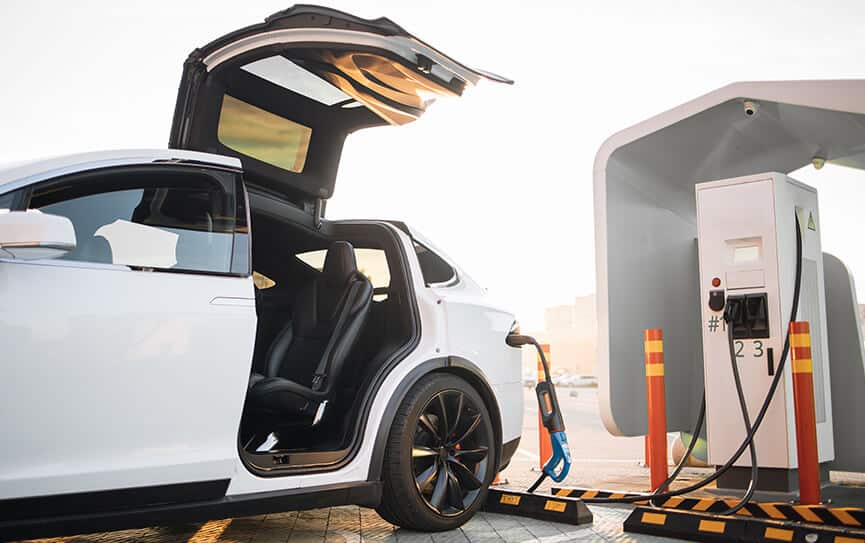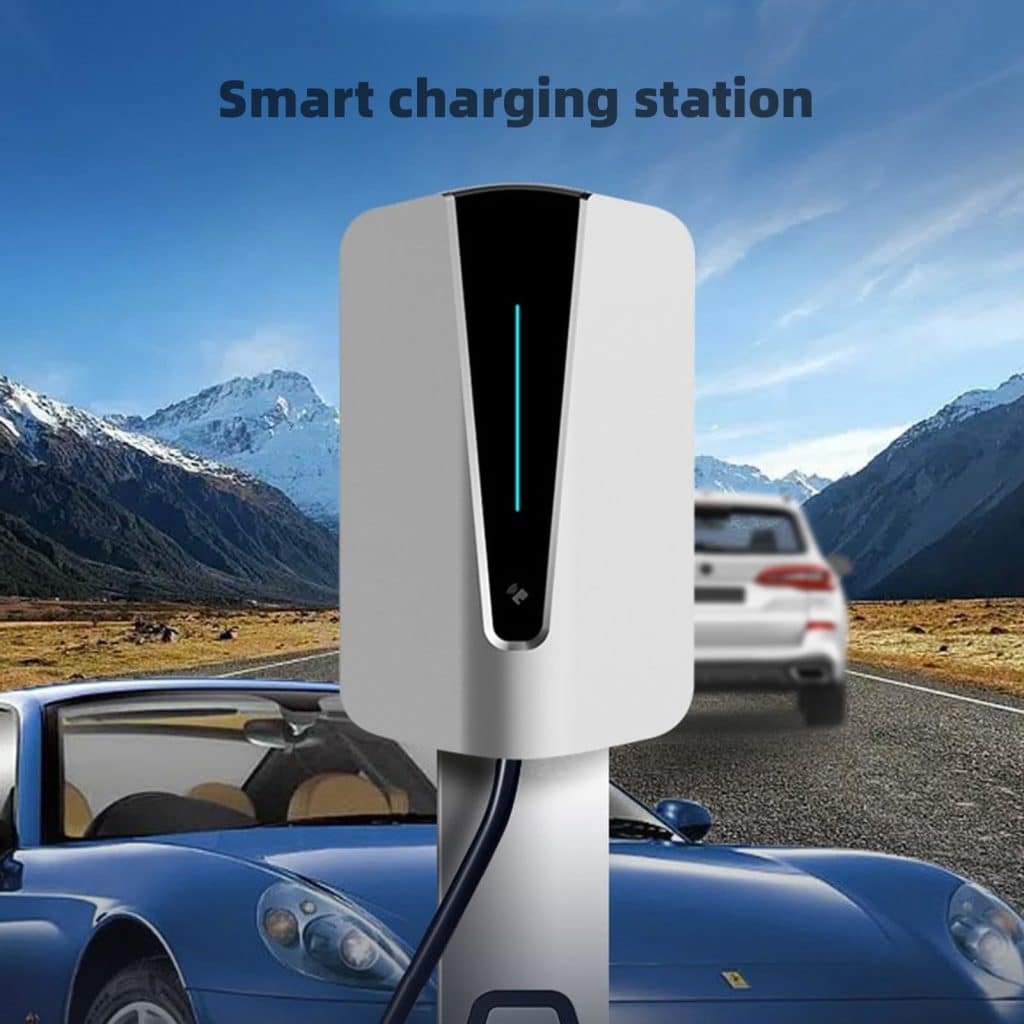Are you considering switching to an electric vehicle (EV) and wondering how to choose the right charger? Look no further! In this article, we will guide you through the process of choosing between fast chargers and slow chargers for your EV.
When selecting a charger for your vehicle, it’s essential to consider your specific needs and usage patterns. Fast chargers, also known as Level 3 chargers, can deliver high levels of power and charge your EV quickly, usually in less than an hour. On the other hand, slow chargers, or Level 2 chargers, are more suitable for overnight charging or when you have more time to spare.
To make an informed decision, you need to understand the charging capabilities of your EV, the available charging infrastructure in your area, and your daily driving requirements. We will explore the pros and cons of each charging option, including factors like charging speed, cost, and compatibility.
By the end of this article, you will have all the information you need to choose the right charger for your EV and ensure hassle-free charging experiences. So, let’s dive in and discover the best charging solution for your electric vehicle!
Understanding the Different Types of Electric Vehicle (EV) Chargers
When it comes to EV chargers, there are two main types: fast chargers (Level 3 chargers) and slow chargers (Level 2 chargers). Understanding the differences between these chargers is crucial in making an informed decision.
Fast chargers are designed to deliver high levels of power to your EV, allowing for quick charging times. These chargers are typically found in public charging stations and can charge your vehicle to around 80% capacity in less than an hour. However, it’s important to note that not all EVs are compatible with fast chargers, so it’s essential to check your vehicle’s specifications before investing in one.
Slow chargers, on the other hand, are more commonly found in residential settings. These chargers deliver power at a slower rate, usually taking several hours to fully charge your EV. While slow chargers may not be as convenient as fast chargers, they are ideal for overnight charging or when you have more time to spare.
Benefits of Using a Fast Charger for Your EV
Fast chargers offer several advantages for EV owners. The primary benefit is the ability to charge your vehicle quickly, allowing for shorter charging times and increased convenience. This is especially useful for EV owners who frequently travel long distances or require rapid charging for their daily usage.
Another advantage of fast chargers is their availability in public charging stations. As the popularity of EVs continues to grow, more fast charging stations are being installed, making it easier to find a charging station when you’re on the go. Additionally, some fast chargers are equipped with advanced features like smartphone connectivity, allowing you to monitor and control the charging process remotely.
However, it’s important to consider the limitations of fast chargers. These chargers are typically more expensive than slow chargers, both in terms of upfront costs and installation requirements. Additionally, fast charging at high power levels can put stress on the battery, potentially reducing its overall lifespan over time. It’s crucial to weigh these factors against the convenience of fast charging to determine if it’s the right option for you.

Benefits of Using a Slow Charger for Your EV
While slow chargers may not offer the same speed and convenience as fast chargers, they come with their own set of benefits. One of the primary advantages of slow chargers is their affordability. These chargers are generally more cost-effective compared to fast chargers, making them an attractive option for EV owners on a budget.
Slow chargers are also more widely available, as they can be easily installed in residential settings. This means you can charge your EV overnight or whenever it’s convenient for you, without having to rely on public charging stations. Additionally, slow charging is gentler on your vehicle’s battery, reducing the risk of overcharging or overheating.
Another advantage of slow chargers is their compatibility with a wide range of EVs. Unlike fast chargers, which may have specific compatibility requirements, slow chargers can work with most EV models, providing a versatile charging solution.

Factors to Consider When Choosing an EV Charger
When selecting an EV charger, there are several factors you should consider to ensure it meets your specific needs. Here are some essential factors to keep in mind:
- Charging Speed: Determine how quickly you need to charge your vehicle and choose a charger that can meet those requirements. If you frequently travel long distances or have limited time for charging a fast charger may be the best option. However, if you have more flexibility and can charge your vehicle overnight, a slow charger may be sufficient.
- EV Compatibility: Check the specifications of your EV to ensure compatibility with the charger you’re considering. Some EVs may require specific chargers or have limitations on charging power.
- Charging Infrastructure: Assess the availability of charging stations in your area. If there are many fast charging stations nearby, it may be more convenient to invest in a fast charger. However, if slow chargers are more prevalent, it may be a more practical choice.
- Cost and Installation Requirements: Consider your budget and the installation requirements of the charger. Fast chargers are generally more expensive to purchase and install, so you’ll need to weigh the cost against the benefits they offer. Slow chargers are typically more affordable and can be easily installed in residential settings.
- Future Proofing: Consider the future needs of your EV. If you plan to upgrade to a higher-capacity EV in the future, it may be worth investing in a fast charger that can accommodate higher charging speeds.
Determining Your Charging Needs
To choose the right charger for your EV, it’s important to assess your daily driving requirements and charging habits. Start by evaluating your average daily mileage and how frequently you need to charge your vehicle. If you have a long daily commute or frequently travel long distances, a fast charger may be necessary to ensure you have enough charge to reach your destination.
Next, consider your charging patterns. If you have the opportunity to charge your vehicle overnight or during periods of inactivity, a slow charger may be sufficient. However, if you often find yourself needing to charge on the go or require rapid charging for your daily usage, a fast charger may be more suitable.
It’s also worth considering any future changes to your driving habits or EV ownership. If you anticipate an increase in mileage or plan to upgrade to a higher-capacity EV in the near future, investing in a fast charger may be a wise decision to future-proof your charging capabilities.
Comparing the Cost and Installation Requirements of Fast Chargers vs. Slow Chargers
One of the significant considerations when choosing an EV charger is the cost and installation requirements. Fast chargers generally have a higher upfront cost compared to slow chargers. The price of a fast charger can range from a few hundred dollars to several thousand dollars, depending on the brand, model, and charging capabilities.
In addition to the charger itself, fast chargers often require professional installation, which can add to the overall cost. The installation process may involve electrical work and setting up the necessary infrastructure, such as additional electrical circuits and power supply upgrades.
Slow chargers, on the other hand, are typically more affordable. The cost of a slow charger can range from around $300 to $800, depending on the features and brand. These chargers can be easily installed in residential settings with minimal electrical work, making them a cost-effective option for many EV owners.
When considering the cost, it’s important to factor in any potential government incentives or rebates that may offset the initial investment. Some regions offer financial incentives for EV charger installation, which can help reduce the overall cost.
Best Practices for Choosing an EV Charger
To ensure you choose the right charger for your EV, here are some best practices to keep in mind:
- Research: Take the time to research and understand the different charger options available in the market. Read reviews, compare features, and consider the experiences of other EV owners.
- Check Compatibility: Before purchasing a charger, verify its compatibility with your specific EV model. Consult your vehicle’s manual or contact the manufacturer for guidance.
- Assess Charging Infrastructure: Evaluate the availability of charging stations in your area. Consider the proximity and accessibility of fast charging stations, as well as the prevalence of slow chargers.
- Consider Future Needs: Think about any future changes to your driving habits or EV ownership. If you plan to upgrade to a higher-capacity EV or anticipate increased mileage, choose a charger that can accommodate your future needs.
- Consult Professionals: If you’re unsure about the technical aspects of choosing an EV charger, consult with professionals or EV experts. They can provide valuable insights and help you make an informed decision.
Resources for Finding and Purchasing EV Chargers
Finding and purchasing the right EV charger can be made easier with the help of various online resources. Here are some platforms and websites where you can find EV chargers:
- Manufacturer Websites: Visit the official websites of EV charger manufacturers to explore their product offerings and specifications.
- Online Retailers: Online retailers like Amazon, Best Buy, and Walmart offer a wide selection of EV chargers from various brands. Read customer reviews and compare prices to find the best option for you.
- EV Charging Networks: Check the websites or mobile apps of EV charging networks like ChargePoint and EVgo. They often provide information on compatible chargers and may offer discounts or incentives for EV owners.
- Local Electricians and Contractors: Consult with local electricians or contractors who specialize in EV charger installation. They can provide recommendations and help you choose the right charger for your specific needs.
Conclusion: Making the Right Choice for Your EV Charging Needs
Choosing the right charger for your electric vehicle is a crucial decision that can impact your charging experience and convenience. By understanding the differences between fast chargers and slow chargers, considering your specific needs, and assessing the available charging infrastructure, you can make an informed decision.
Evaluate factors like charging speed, cost, compatibility, and installation requirements to determine the best charger for your EV. Consider your daily driving requirements, charging patterns, and any future changes to your EV ownership.
Whether you opt for a fast charger for rapid charging or a slow charger for overnight charging, make sure to follow best practices, consult professionals when needed, and research popular brands and models. By doing so, you can ensure hassle-free charging experiences and enjoy the benefits of driving an electric vehicle.
Remember, choosing the right charger is an investment in your EV ownership journey, providing you with the convenience and peace of mind you deserve.
Happy charging!



